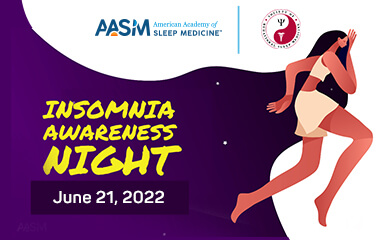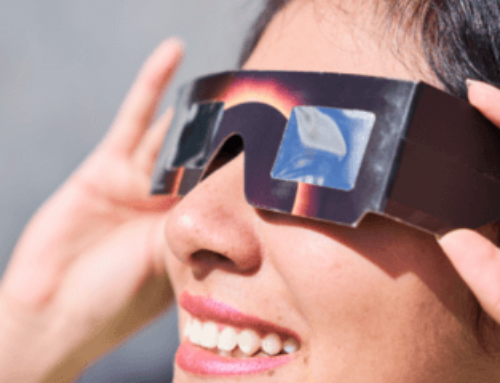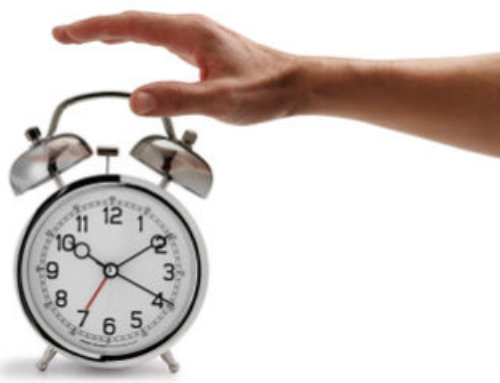DARIEN, IL – Nearly 3 in 10 Americans (28%) say insomnia has a negative impact on their daily lives, according to a new survey from the American Academy of Sleep Medicine (AASM). On Tuesday, June 21, the “shortest night of the year,” the AASM and the Society for Behavioral Sleep Medicine (SBSM) will hold the annual Insomnia Awareness Night to drive awareness of chronic insomnia and its treatments.
More than an occasional restless night, chronic insomnia involves difficulty falling asleep or staying asleep, or regularly waking up earlier than desired, despite allowing enough time in bed for sleep. Chronic insomnia disorder involves difficulty sleeping and daytime symptoms occurring at least three times per week for at least three months. Its lasting effects are more severe than acute or short-term insomnia, which in most cases resolves itself.
“Chronic insomnia is a serious public health problem associated with numerous health and safety risks that can impact not just how a person sleeps at night, but also how a person feels or functions during the daytime,” said Jennifer Martin, a licensed clinical psychologist and president of the AASM. “By observing Insomnia Awareness Night annually and shedding light on the dangers of chronic insomnia disorder, our goal is to give individuals the information they need to find support for an ongoing sleep problem, enabling them to experience the joy of healthy sleep once again.”
Symptoms and Impact of Chronic Insomnia
Symptoms associated with chronic insomnia include daytime fatigue or sleepiness; feeling dissatisfied with sleep; having trouble concentrating; feeling depressed, anxious or irritable; or having low motivation or low energy. It is more common in women than in men.
Chronic insomnia is associated with increased risk of a range of physical and mental health issues. Research suggests chronic insomnia can lead to increased risks of depression, anxiety, substance abuse and motor vehicle accidents. Research also shows that impaired sleep is a risk factor for Alzheimer’s disease, and a recent study found that people who have insomnia are 28% more likely to develop Type 2 diabetes than those without.
Chronic insomnia also has a negative impact on work and school performance, impairing concentration and increasing the risk of errors and accidents. Research has estimated that insomnia is associated with nearly 253 million days of lost work each year in the U.S. and more than $100 billion in annual costs due to indirect costs such as poorer workplace performance, increased health care utilization and increased accident risk.
“Developing healthy sleep hygiene habits can help someone who has a mild or short-term case of insomnia, but if symptoms persist into the daytime and inhibit your quality of life, it’s time to seek support from your doctor,” said Michael Grandner, a licensed clinical psychologist and president of SBSM. “Board-certified sleep experts can determine an accurate diagnosis for an ongoing sleep problem and guide individuals along a proper treatment plan for their unique health history and lifestyle.”
Use of Sleep Aids Growing; Cognitive Behavioral Therapy Recommended
The 2022 AASM survey also found that a majority (64%) of Americans are using sleep aids or substances to help them fall asleep or stay asleep. Twenty-three percent report use of prescription medications, 27% use melatonin and 20% use marijuana or CBD. Even more troublesome, use of sleep aids has also proliferated recently, with 37% of those who use sleep aids reporting their use has increased during the COVID-19 pandemic. The Centers for Disease Control and Prevention recently reported that melatonin is the most frequently ingested substance among children reported to national poison control centers, and melatonin ingestions in children increased 530% between 2012 and 2020.
“Parents should talk to their pediatrician before giving their children melatonin or any supplement,” said Martin. “Often behavioral interventions can be successful in addressing sleeplessness in children.”
When used correctly melatonin can be used to treat some sleep disorders, however, a clinical practice guideline published by the AASM suggests that clinicians should not use melatonin for adults to treat chronic insomnia. Those who suspect they have chronic insomnia should work with their medical provider to find the best treatment option before implementing any self-directed treatments for insomnia.
For those with chronic insomnia, the recommended first-line of treatment is cognitive behavioral therapy for insomnia (CBT-I). CBT-I combines behavioral strategies, such as setting a consistent sleep schedule and getting out of bed when you are struggling to sleep, with cognitive strategies, such as replacing fears about sleeplessness with more helpful expectations. CBT-I recommendations are customized to address each patient’s individual needs and symptoms. While six to eight sessions are typical, some patients improve more quickly.
“Cognitive behavioral therapy can help patients by providing customized strategies for individuals of all ages who are suffering from insomnia,” concluded Martin. “Studies show that CBT-I shows meaningful improvements for those with chronic insomnia, and it’s a cost-effective option.”
Patients should also be aware that prescription sleep aids are not a ‘one-size-fits-all’ solution to nightly sleep trouble and are not recommended as a first-line approach for most patients as they are only recommended for short-term use. When mediations are needed, patients should work with their medical provider to discuss the risks and benefits of different medication options.
Insomnia Awareness Night Activities
Those who would like to connect with experts for information and advice about chronic insomnia can join the conversation on Tuesday, June 21:
- Instagram Live discussion with Andrea Matsumura, MD, and Sarah Silverman, PsyD, representing the AASM and SBSM, from 9-10 p.m. EDT
- Reddit Ask Me Anything with AASM President Jennifer Martin, PhD, from 10-11 p.m. EDT
Since 2014, Insomnia Awareness Night has been held nationally to provide education and support for those living with chronic insomnia. To learn more about Insomnia Awareness Night, visit https://sleepeducation.org/get-involved/campaigns/insomnia-awareness-night/. To learn more about the importance of healthy sleep or to find a local, AASM-accredited member sleep center in your area, visit SleepEducation.org.
# # #
About the American Academy of Sleep Medicine
Established in 1975, the AASM advances sleep care and enhances sleep health to improve lives. The AASM has a combined membership of 11,000 accredited member sleep centers and individual members, including physicians, scientists and other health care professionals.
About the Society of Behavioral Sleep Medicine
The Society of Behavioral Sleep Medicine (SBSM) is an interdisciplinary organization committed to advancing the scientific approach to studying the behavioral, psychological and physiological dimensions of sleep and sleep disorders and the application of this knowledge to the betterment of individuals and societies worldwide (https://www.behavioralsleep.org/).
About the Survey
The American Academy of Sleep Medicine commissioned an online survey of 2,010 adults in the U.S. The overall margin of error fell within +/- 2 percentage points with a confidence interval of 95 percent. Fieldwork took place between Feb. 17-24, 2022. Atomik Research is an independent market research agency.









